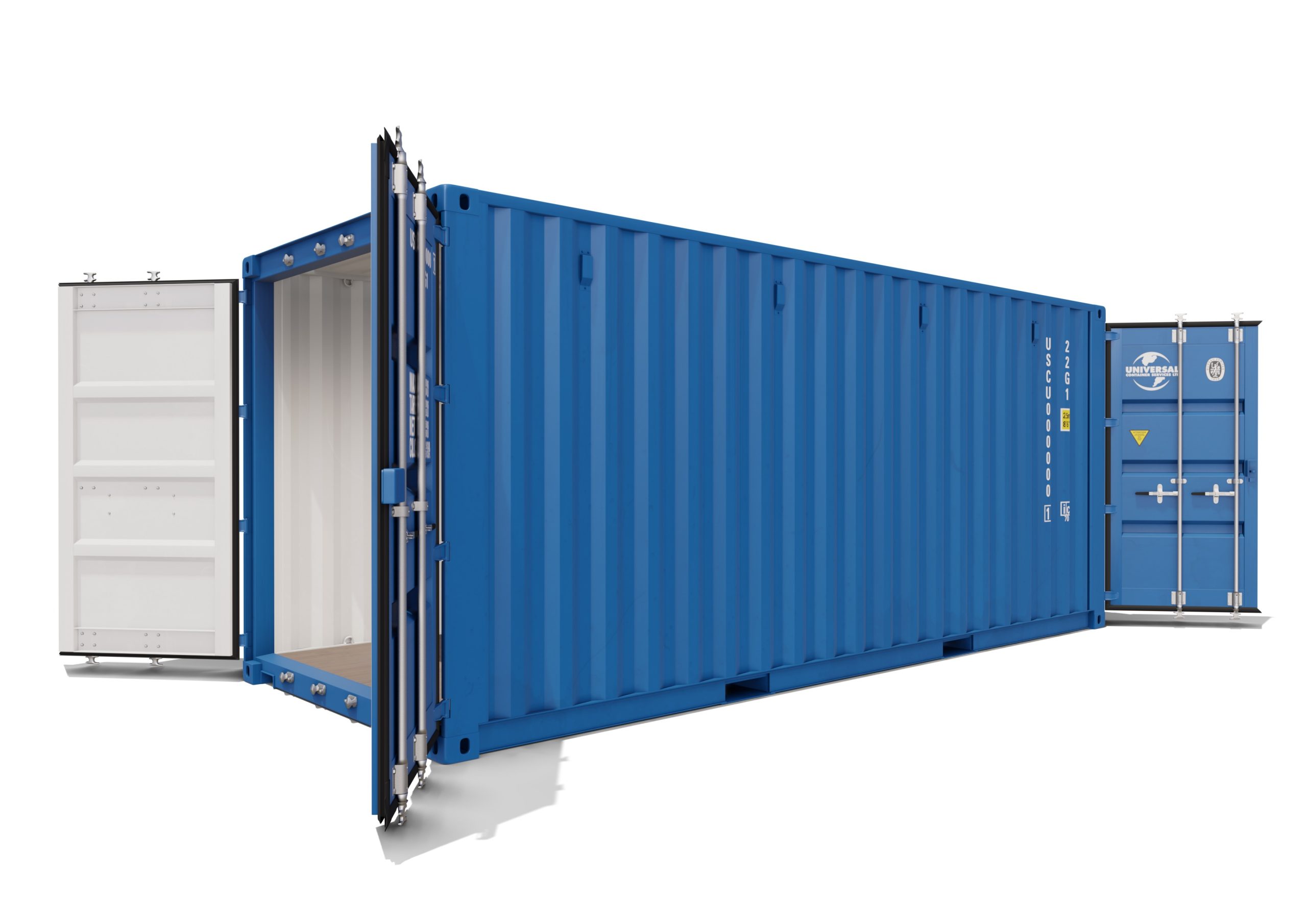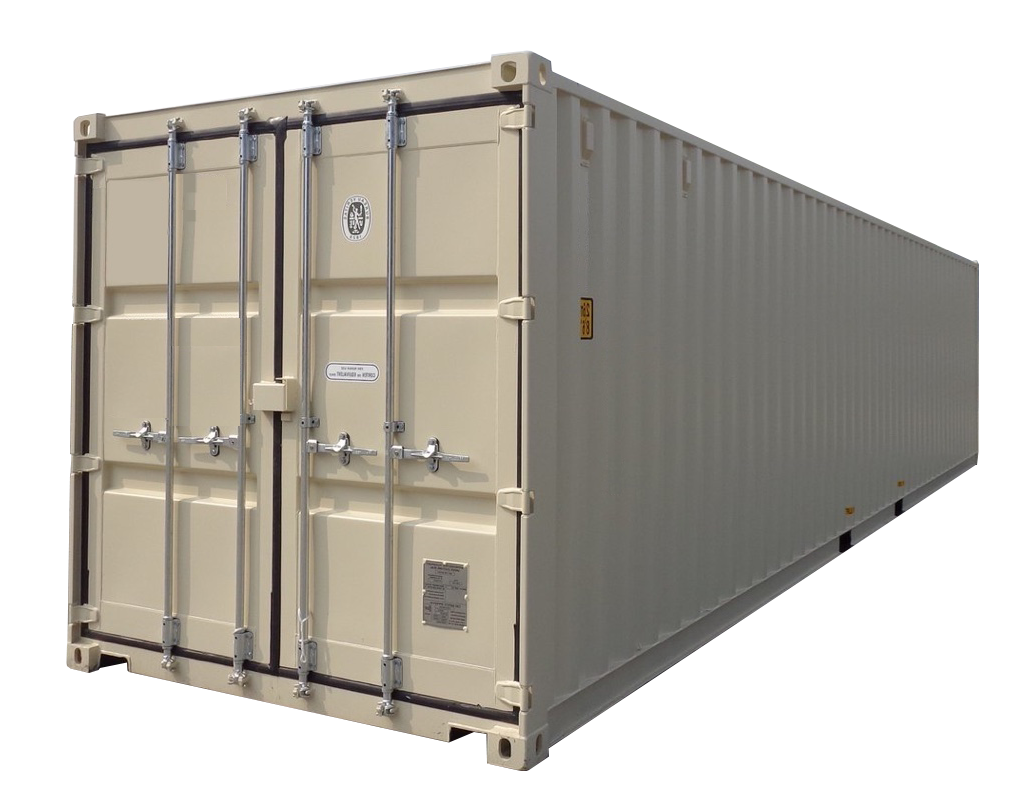How to Buy New Shipping Container 40 x 8 x 9.6 and Convert It into an Eco-Friendly Office
How to Buy New Shipping Container 40 x 8 x 9.6 and Convert It into an Eco-Friendly Office
Blog Article
The Ultimate Overview to Choosing the Right Shipping Container for Your Needs
When it involves picking the right shipping container, understanding your specific needs is essential. You'll wish to take into consideration factors like dimension, kind, and material to ensure you make the most effective option. From standard sizes to specialized alternatives, there's a lot to explore. Plus, budgeting for both the container and any type of adjustments can make a large difference. Let's damage down the key elements to help you locate the ideal fit for your requirements.
Comprehending Delivery Container Sizes
When you're selecting a delivery container, understanding the different dimensions available is essential for making the ideal decision. Shipping containers typically are available in common sizes of 20 and 40 feet, yet you'll likewise find various other measurements. Recognizing the size you require relies on what you plan to store or transport.If you're moving smaller sized products, a 20-foot container may be perfect, while bigger deliveries typically need a 40-foot container. The height can also differ; high dice containers supply added vertical space, which can be useful for taller goods.Before determining, gauge your freight, and consider how much space you'll need for packing and dumping. Constantly consider potential future demands-- deciding for a somewhat larger container might save you trouble down the line. Eventually, choosing the ideal size will improve efficiency and assure your things are secure during transportation
Types of Delivery Containers Available
There are numerous sorts of delivery containers readily available, each made for details functions and freight needs. The conventional completely dry container is functional, ideal for basic freight. If you're shipping disposable items, consider a refrigerated container, which keeps a regulated temperature level. For oversized things, high cube containers offer extra elevation, accommodating taller loads.If you require to transfer hefty equipment or equipment, flat rack containers offer a strong base without walls. Open-top containers permit for very easy loading of tall freight, with a removable tarp covering for protection. If you're looking for versatility, consider a collapsible container that can be quickly saved when not in use.Lastly, specialized containers like tank containers are utilized for fluids, while vented containers are designed for bulk cargo that needs air flow. Recognizing your freight type will aid you pick the right container to meet your delivery needs effectively.
Material Factors To Consider for Resilience
When picking a shipping container, the material plays an important duty in its toughness. You'll wish to consider the advantages of steel versus aluminum, especially concerning deterioration resistance. Recognizing these elements can assist you make a more enlightened option for your shipping needs.
Steel vs. Light weight aluminum Containers
How do you choose between steel and aluminum containers for your shipping requires? Beginning by considering resilience. Steel containers are robust and offer excellent strength, making them excellent for heavy loads and harsh problems. They resist damage from effects and are frequently less costly, which can be a significant variable for budget-conscious buyers.On the various other hand, light weight aluminum containers are light-weight, which can save you on delivery prices. They're less complicated to navigate and are a fantastic choice if you need to move products regularly. Aluminum is usually a lot more costly and much less durable than steel. Weigh your particular requirements carefully, consisting of weight, expense, and the kind of cargo you'll be shipping, to make the appropriate option for your situation.
Corrosion Resistance Elements
Picking the ideal material does not simply include weight and cost; rust resistance plays a substantial duty in longevity. When choosing a shipping container, take into consideration the setting it'll encounter. Steel containers, while solid, can corrosion otherwise correctly treated. Search for alternatives with safety finishings or galvanization to improve their lifespan. Aluminum, on the various other hand, uses all-natural deterioration resistance, making it optimal for coastal areas or moist problems. It can be much more pricey. Additionally, evaluate the container's usage-- if it'll be subjected to chemicals or severe climate, focus on materials that can endure these problems. Buying a corrosion-resistant container now can conserve you from costly repair work or replacements down the line. Select wisely for lasting advantages.
Alterations and Modification Options
Shipping containers aren't just for moving items; they can be transformed to fulfill your particular demands via different adjustments and personalization alternatives. You can transform a common container into a cozy find out here office, a temporary retail shop, or perhaps an individual health club. The opportunities are almost endless.Think concerning adding windows, insulation, or air flow to improve convenience. You could also take into consideration electrical circuitry, plumbing, and even custom shelving to improve capability. If security's a concern, reinforced locks can offer tranquility of mind.For aesthetic allure, you can repaint the container or add an unique layout to make it stick out. Don't ignore floor covering options-- whether you want long lasting plywood or something more advanced, it can elevate the space.Ultimately, customizing your shipping container to match your requirements can enhance functionality and create an one-of-a-kind environment that shows your design.
Assessing Your Transport Demands
When it pertains to utilizing your changed delivery container, comprehending your transportation requires is vital. Begin by identifying what you'll be delivery-- whether it's heavy tools, retail items, or personal things. Each kind of cargo has different needs relating to dimension, weight, and accessibility.Next, think about the range and setting of transport. Are you delivering locally, nationally, or globally? This affects the container's style and performance. If you're making use of vehicles, assure your container fits common measurements for easy loading and unloading.Additionally, assume about transportation problems. Will your things need special protection from climate or temperature level changes? If so, you may require insulation or ventilation attributes in your container.Lastly, examine exactly how frequently you'll be moving products. Constant shipments might call for a much more long lasting and versatile container to fulfill continuous demands. By attending to these elements, you'll be well-prepared to choose the appropriate shipping container for your requirements.
Budgeting for Your Shipping Container
Establishing a spending plan for your delivery container is vital for making certain a smooth acquiring process. Determine just how much you can manage to review spend. Prices can differ substantially based on size, condition, and kind. New containers normally cost much more, yet used ones can offer substantial savings.Next, consider any extra costs you could sustain, such as transport costs, shipment charges, and modifications. If you prepare to personalize the container, factor in those expenditures too. Research various providers to contrast costs and locate the best deal that satisfies your needs.Don' t fail to remember to include click for more any authorizations or laws that might relate to your purchase and usage of the container. By plainly outlining your budget, you'll be better prepared to make educated decisions, guaranteeing you obtain the right container without damaging the bank.
Upkeep and Care for Longevity
To ensure your delivery container lasts for many years, regular maintenance is key. Beginning by examining the exterior for rust, dents, and damages. If you spot any issues, address them quickly to stop further wear and tear. Clean the container regularly, both in and out, to eliminate dust, particles, and moisture that can bring about corrosion.Ensure the doors secure appropriately and oil the hinges to prevent corrosion and sticking. If you're utilizing the container for storage, think about including ventilation to reduce humidity and mold and mildew growth. For extra defense, use a rust-inhibiting paint or sealer annually.If your container's located in a harsh atmosphere, like coastal locations, you may require to increase upkeep frequency. Maintain an eye on the flooring, also; any signs of wear need to be repaired as soon as possible. With these basic actions, you'll extend the life of your shipping container considerably.
Regularly Asked Inquiries
How Do I Discover a Trusted Delivery Container Supplier?
To locate a trustworthy delivery container vendor, start by researching on-line evaluations, requesting referrals from friends or sector calls, and contrasting rates. Constantly inspect their qualifications and assurance they use top quality containers that satisfy your needs.

Can I Rent a Shipping Container As Opposed To Purchasing?
Yes, you can definitely rent a delivery container rather than getting one. Lots of vendors use rental alternatives, which can conserve you money and give flexibility if you just require it for a brief duration.
What Permits Are Needed for Container Placement?

Are Delivery Containers Weatherproof and Suitable for Outdoor Storage Space?
Yes, shipping containers are generally weatherproof, developed to endure severe conditions. Their robust building keeps your items safe and dry, making them appropriate for exterior storage space. Just guarantee appropriate ventilation to avoid wetness accumulation inside.
How Do I Transfer a Shipping Container As Soon As Acquired?

Report this page